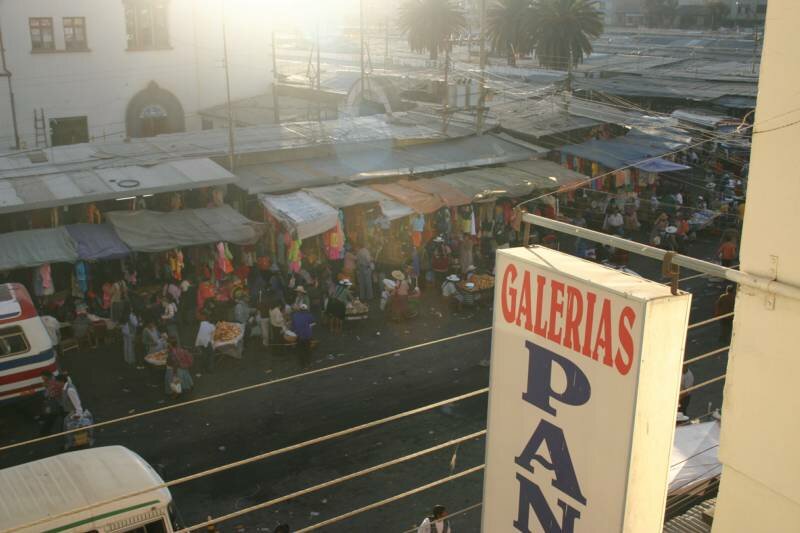
Two types of vendors sell in La Cancha: permanant vendors and ambulant vendors (the ambulantes). Permanant vendors own or rent stalls and stands from the city with legal license to sell. Their stalls allow protection from sun and heat, as well as a removed space from the busy streets. Permanent vendors can also lock their merchandise up at night to deter thieves and looters. Vendedores amublantes, meaning "ambulant vendors", are unable to afford the rent prices of market stalls. Instead, they sell out of mobile stands like wheelbarrows, blankets, large sacks, or makeshift ovens with wheels. Typically earning only $1-2USD per day (and their entire capital amounting to roughly $7-15USD), ambulantes must be watchful of Comisarios, the police who patrol the market, who harrass them for selling illegally and occasionally confiscate their goods. To avoid this, Ambulantes move and wander around La Cancha to avoid thieves, harrassment by police and permanant vendors, heavy pollution and the danger of passing buses.
El comercio ambulante en
La Cancha
La Cancha, South America's largest open-air market, stretches 15 blocks along the southern zone of the city of Cochabamba. The Department of Cochabamba is situated in the center of Bolivia, allowing La Cancha to serve as Bolvia's central hub between agricultural regions and urban consumers. Historically La Cancha's vendors have been rural peasants, campesinos, former miners, and other displaced groups searching for new urban opportunities after the collapse or privitization of major industries.
What is La Cancha?
A small child walks alone past working ambulantes